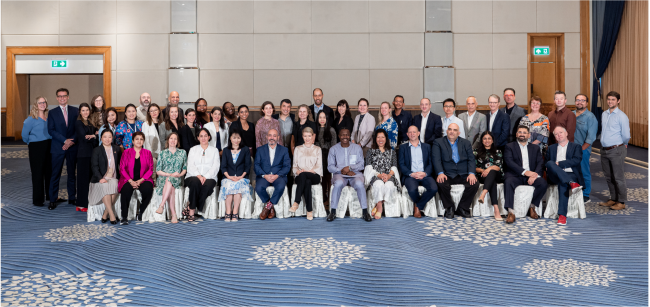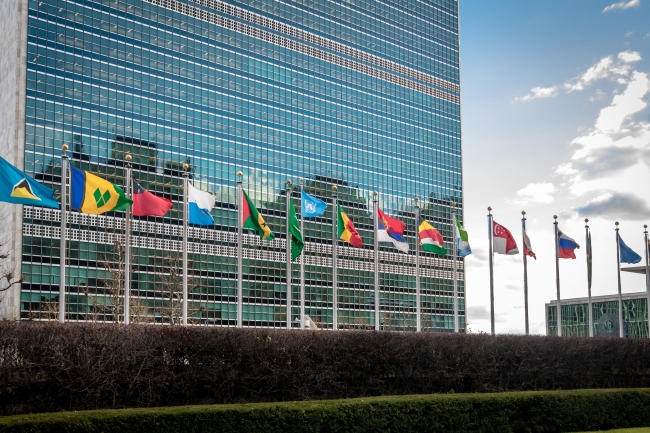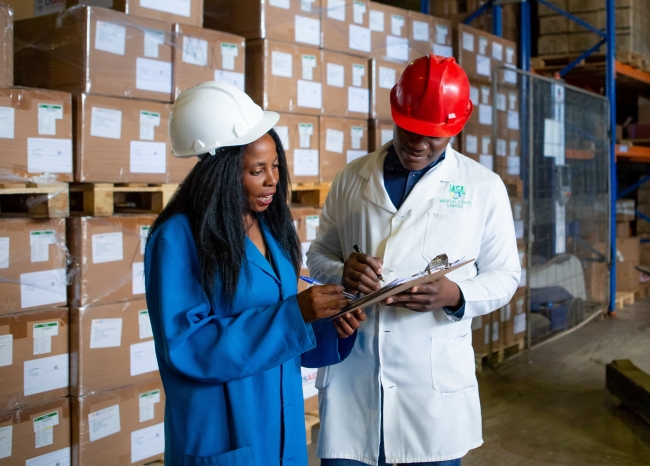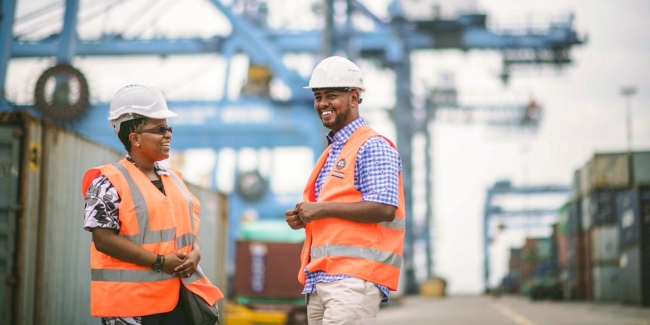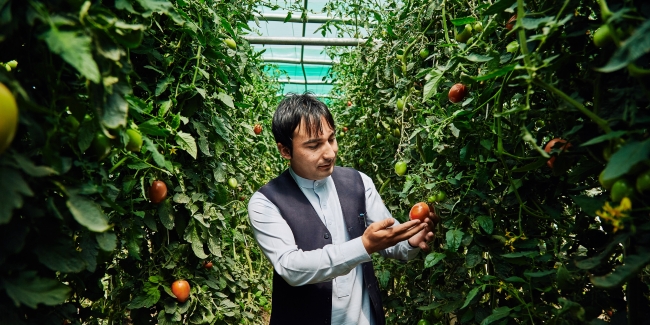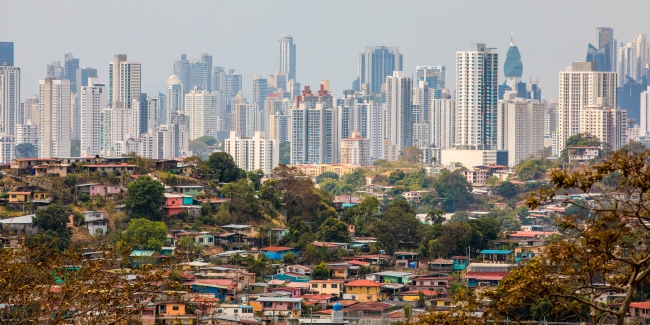Lessons from the field: what role does the private sector play in climate-security?
03 NOVEMBER, 2022

At a glance
Complex challenges require cross-cutting solutions that go beyond traditional siloed and sectoral development. The SIDA-funded project ‘SDG Climate Facility: Climate Action for Human Security, through its pilot grants in six Arab States has demonstrated that integrated climate-security approaches and private sector engagement can go hand-in-hand and enable replication at scale. Several pilot grants were able to catalyze direct private finance, enable private sector development in humanitarian settings, and support entrepreneurship for climate security in Palestine, Yemen, and Jordan. For example, the pilot in Palestine, despite its nimble size of de-risking grants of $253,000 and co-financed with $300,000 by the Government of Japan, catalyzed $2.35 million in private finance.
The Arab States region is a climate change hotspot, with temperatures rising faster than the global average. It is also the world’s most water-scarce and food-import-dependent region. Climate change is stretching the ability of communities and ecosystems to cope, and the degradation of ecosystems has emerged as a destabilizing force for communities across the region. Energy security is also a growing concern. Today solar and wind power constitute only 1.3% of power, despite hosting the world’s highest levels of solar radiation.
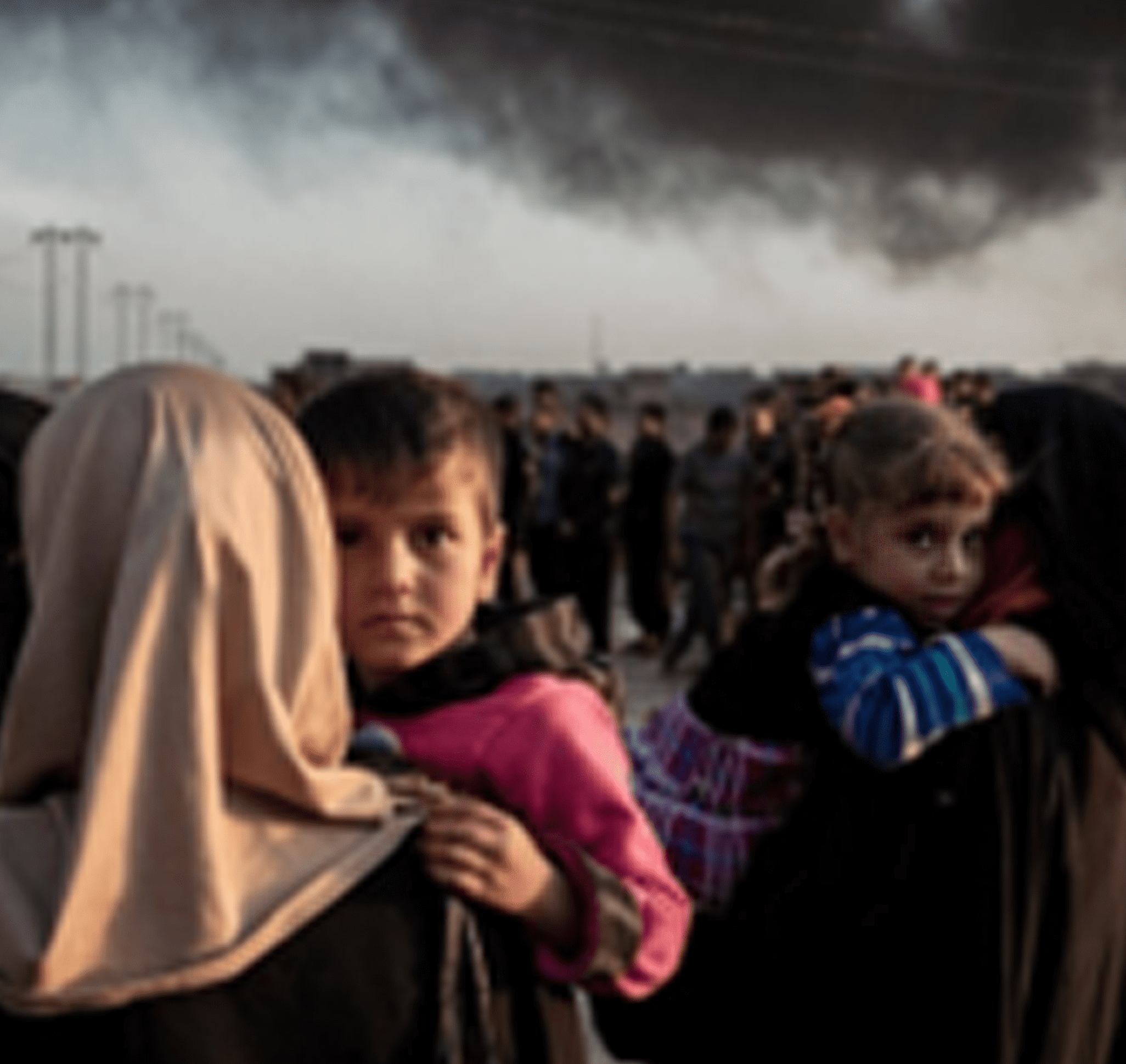
In countries impacted by conflicts, recovery efforts need to look at re-establishing safety and security, and ensuring economic growth, while promoting long-term climate resilience to better withstand climate shocks and disasters. The concept of ‘climate-security solutions’ is cross-cutting, touching on social, economic, and political dimensions, often across borders with localized solutions.
For a game-changer solution, the private sector’s engagement at scale is essential. However, why would the private sector engage on climate-security, and how can we mobilize investors to support climate-security technologies in risky environments and fragile contexts?
Innovative partnership addresses complex challenges
To address the climate-induced human insecurity in the Arab States, UNDP and the League of Arab States brought together the WFP, UNEP FI, UNDRR, UN-Habitat, and the Arab Water Council under the umbrella of the regional Sida-funded project ‘SDG Climate Facility: Climate Action for Human Security'. The project comprises of regional-level policy interventions along with national-level pilot grants that seek to identify and demonstrate localized cross-cutting climate-security solution approaches with multiple co-benefits across the SDGs.
UNDP leads the implementation of seven pilot grants including in Egypt, Iraq, Jordan, Palestine, Tunisia, and in Yemen. Through innovative partnerships with the private sector and catalytic grant funding, the project aims to scale up the access to and delivery of climate finance to enhance the long-term climate security of marginalized and vulnerable communities of the Arab States.
New business model reduces investment risks while increasing climate-security
In addition to addressing the climate-security challenges, the project aims to develop a business model to reduce perceived or actual risks to public and private investors who may be interested in scaling up and replicating the demonstrated approaches. By covering some of the upfront costs of investments, the project lowered the risks to investors and made interventions viable that otherwise would not have occurred.
Several of the pilot grants in Palestine, Yemen, and Jordan demonstrated that private sector engagement and private finance can be catalyzed even for less well-known climate-security approaches in high risk and fragile contexts. UNDP has identified and developed tailored solution approaches fit for crowding in private sector actors for climate security in fragile contexts and linked up finance and technical expertise with investable opportunities. Early lessons show that highly contextualized technologies and tailored business models can be highly effective in catalyzing private finance and spurring MSME growth, and can enable private sector development for sustainable development even in otherwise humanitarian-oriented settings:
Lesson 1. Catalyzing private finance
The objective of the pilot “Fostering Renewable Energy Access for Climate Security in Palestine” is to develop, finance, and apply integrated solutions for climate-secure clean energy in marginalized communities to kickstart socio-economic recovery and mitigate social instability at the local level in Palestine. Ninety-one percent of electricity in Palestine is imported making electricity prices the highest in the MENA region. Ultimately high costs of electricity have a serious impact on livelihoods and economic activity.
Large-scale infrastructure deals are often out of reach in states that are impacted by fragility or conflict. However, smaller-scale and decentralized technologies can still be highly effective in these circumstances. In the case of Palestine, the “golden middle” of solar PV plants ranging between 1-2 Megawatts has been determined as the most impactful yet practicable solution, based on stakeholder consultations undertaken as part of the pilot.
The pilot provided technical assistance to two municipalities and developed a study focusing on financing solar PV stations and impacts on public finance, including incentive schemes that can draw in private finance. The study developed a discounted price option for Qabalan Municipality and a Build-Operate-Transfer arrangement for Arrabah Municipality and outlined the solar station development process to follow. Through this model, the municipalities can improve their financial situation to provide better services for their citizens and create new job opportunities. There are multiple benefits to clean and reliable, domestically generated electricity, including for instance that schools are less likely to suffer from frequent power outages.
In addition, nimble de-risking grants were allocated by the project to (i) Enhance the capacity of the electricity grid to absorb excess electricity to be produced by solar utilities; (ii) rehabilitate transmission lines to reduce electricity loss; (iii) install electrical transformers; (iv) enhance connection points between the solar utility and the grid; (v) prepare electricity distribution master plans. This enabled the communities to be “ready” for adding solar PV capacity and crowding in private finance.
Despite its nimble size of de-risking grants of $253,000 and co-financed with $300,000 by the Government of Japan, the pilot catalyzed $2.35 million in private finance. The investors are SATCO for Qabalan Municipality and Qudra, a company created by the Arab Palestinian Investment Company (APIC), and Bank of Palestine (BoP), for Arrabah Municipality. The project signed contracts with private solar developers to install two centralized solar PV plants in these two municipalities, which are expected to complete construction in 2022. The successful solar deals were made possible thanks to de-risking investments made through the project grant and co-financing by the Government of Japan.
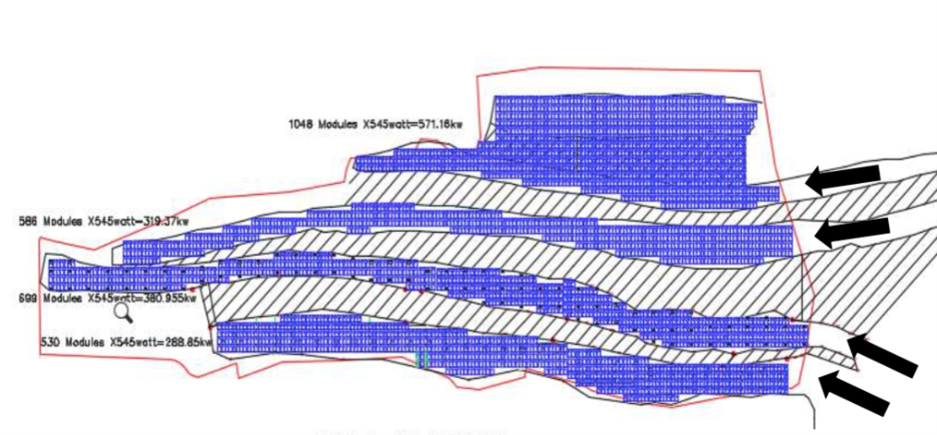
Figure 1. 1.8MW solar station conceptual design conducted by UNDP as part of the technical support for Qabalan Municipality (left) and ongoing civil works (right).
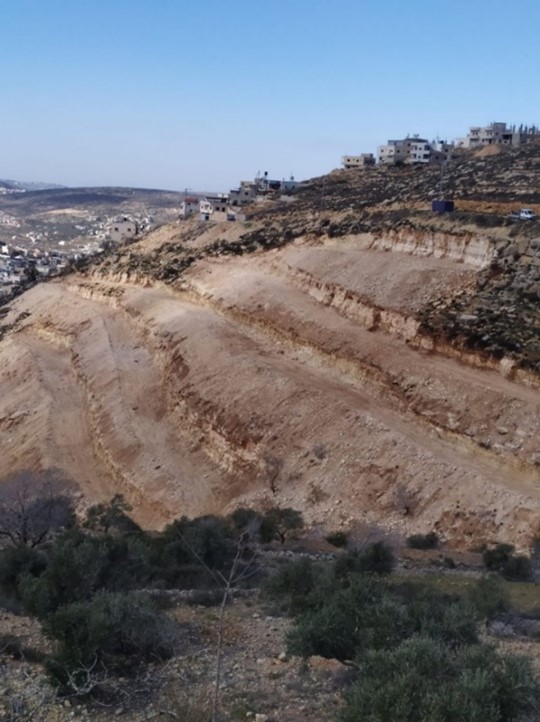
The business model developed through the pilot grant can be scaled up and replicated in other municipalities of Palestine and elsewhere if additional de-risking grants are made available to enable and catalyze private investments. The project’s added value for the long-term is that it facilitated a real partnership between public and private entities that will pave the way for scaling up beyond the pilot project. As a direct result of the pilot, the Ministry of Local Government has signed an agreement with UNDP to enable impact at scale through scaling up of piloted solar PV approaches.
Lesson 2: enabling private sector development for sustainable development in humanitarian settings
The pilot “Decentralized Renewable Energy Solutions for Climate Security in Protracted Crisis in Yemen” aims to enhance the climate security of vulnerable and marginalized communities through innovative off-grid waste-to-energy models that create jobs and enhance livelihoods while providing sustainable energy supply from the treatment of local waste.
The pilot project in Yemen has successfully installed a waste-to-energy gasification plant in Lahj in Southern Yemen, which is now entirely being run by the private sector as a private corporation, becoming financially self-sufficient and sustainable, providing jobs and income to local waste pickers who are using solar-powered tuck-tucks to collect trash and sell it to the waste-to-energy plant.
The plant is expected to transform up to five tons of municipal and agricultural solid waste a day and can generate 100 kilowatts hour of electricity and 1 ton of plastic granules. This is enough to power 100 commercial shops and generate approximately 7,500 jobs for vulnerable people in rural areas. The business model will help ensure access to electricity at an affordable price: US$ 2 for 12 hours versus US$ 20 for 12 hours by fossil fuel. The model can be scaled up in Yemen and replicated in other countries.

Figure 1: Successfully installed and operating waste-to-energy plant in Lahj (right) and solar-powered tuck-tucks delivering waste to the plant (left).
Lesson 3: supporting entrepreneurship and private sector growth
The piloted approach in Jordan also aims to catalyze private sector growth and job creation. Critical barriers to human security in rural Jordan include youth unemployment and local tensions caused by a large number of displaced individuals from neighboring countries. This paired with severe water scarcity threatens agricultural production which is further exacerbated by climate change.
In cooperation with several ministries, including the Ministry of Water, the Ministry of Digital Economy and Entrepreneurship, the Ministry of Agriculture, and the Ministry of Environment, the SDG Climate Facility project developed an initiative that simultaneously tackles all of these drivers of insecurity. In addition to working across ministries, the possibility of breaking pre-conceived siloes within the UNDP teams.
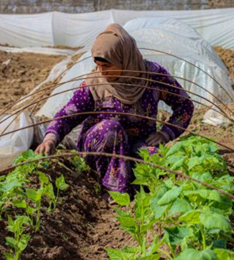
The pilot project “Scaling up Water Innovation for Climate Security in Northern Jordan” identified 103 water-related entrepreneurs and SMEs. The project is now providing one-on-one mentorship and training to 25 of these entrepreneurs and SMEs, to refine their business models, marketing strategies, and financing approaches and also supports community-managed initiatives to roll out some of the entrepreneurs’ technologies for water efficiency, on-site water reuse and reclaimed waste-water systems, soil and water conservation and innovative water security technologies in select demonstration communities. This approach aims to ease local tensions over water, strengthen water security and climate resilience, and enhance agricultural production and food security, while supporting economic growth and job creation at the local level, thereby counteracting rising levels of human insecurity.
The pilot grant could be replicated in other countries with high youth unemployment rates, deteriorating social cohesion, and dwindling water resources.
Call to action
The initial set of pilot grants has provided proofs-of-concept that have the potential to be scaled up and replicated not only within the participating pilot countries but also in other countries in the Arab region and beyond. Based on existing needs and gaps across various countries, there are opportunities to program additional climate-security pilot grants in existing beneficiary countries, as well as, in other Arab States that are experiencing multi-dimensional human insecurity exacerbated by climate change, but which are not yet part of the regional project.

